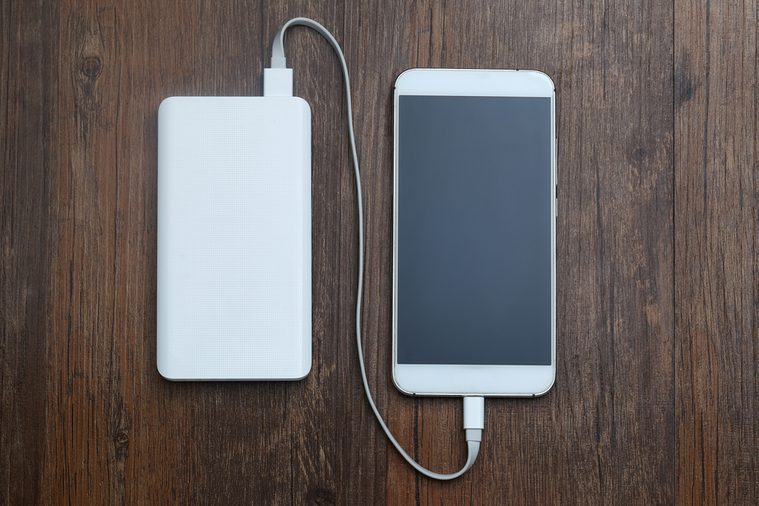
Outlet-free chargers
Cell phones and laptops will still work when the power is out—as long as you’re prepared. “The Internet can be surprisingly robust after an event, but keeping batteries charged is where most people break down,” says Steven J. Jensen, a member of the American Red Cross Scientific Advisory Council and advisor of emergency management at California State University at Long Beach. Having a juiced-up portable battery or small generator will keep you in touch with loved ones and with any emergency updates. This is why 911 is the U.S. emergency number.
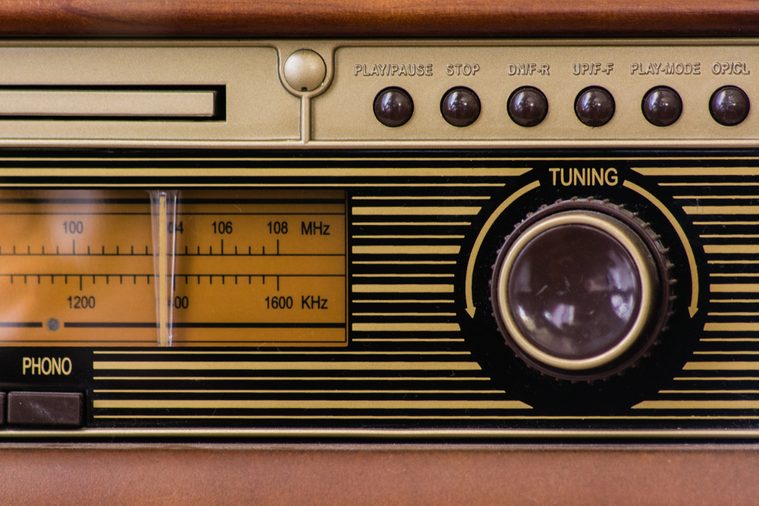
Cordless radio
Gathering around the radio might seem like a thing of the past, but it could prove vital in an emergency situation. “It allows you to get in touch with what’s going on locally,” says Jensen. “That’s important to be able to make good decisions about what happens next.” You won’t miss any important messages warning you not to leave—or to get out fast. Make sure you have a battery-powered or hand-cranked radio so it can work when the power is out. Learn the skills that could help you survive any emergency.
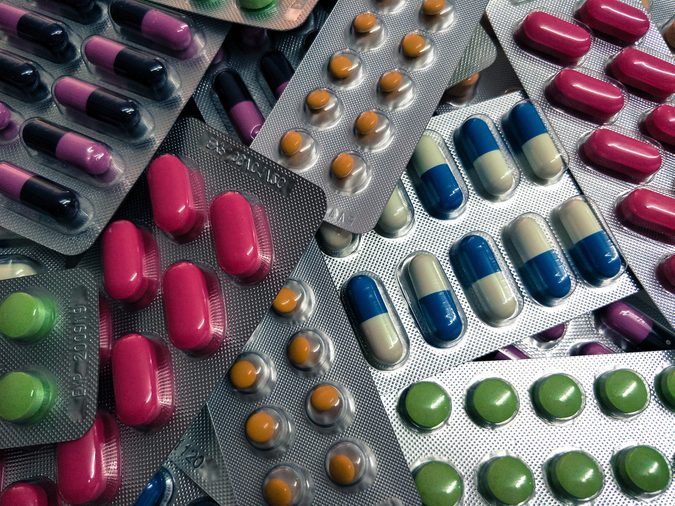
Medications
“Sometimes, the way medications are dispersed now, we have just a very small supply available,” says Jensen. “In a disaster, it might be hard to replenish those supplies.” Talk to your doctor about writing a larger prescription so you have a couple weeks worth on hand if you can’t reach the pharmacy. (You should also try this disaster planning app that helps you get ready for anything.)
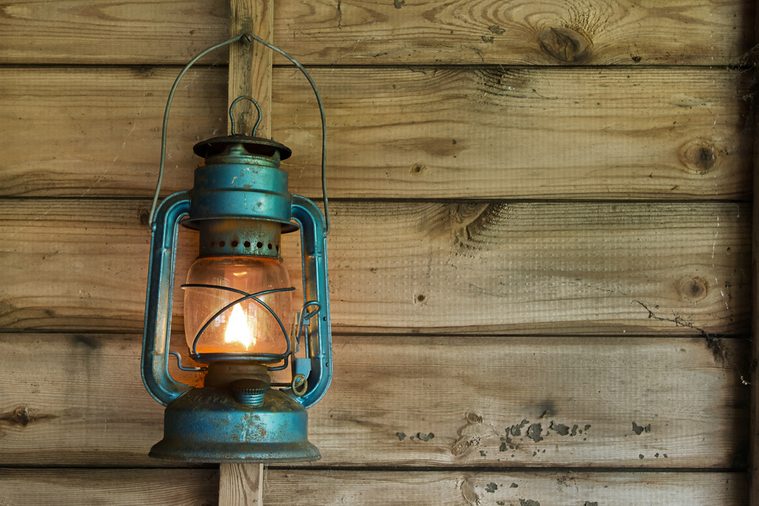
Lantern
Handheld flashlights are convenient to carry and store, but their beams won’t light up a room the way your lamps do. In addition to battery-powered flashlights, pick up a lantern like this one, which can brighten up a larger amount of space. Make sure you know how to save your own life in these 12 emergency situations.
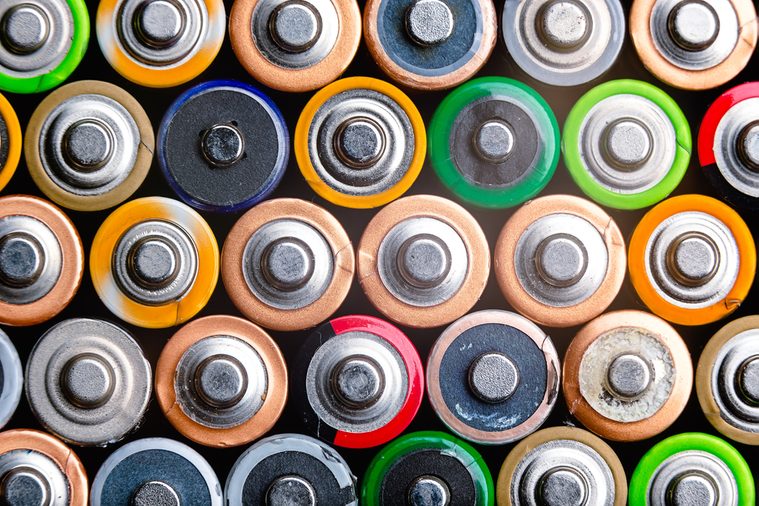
Batteries
If you’ve been using your phone as a flashlight and haven’t touched an actual torch in years, don’t be surprised if the batteries in your backups have worn out or corroded. A pack of extra batteries never hurts. Just avoid these 12 things you should never do during a power outage.
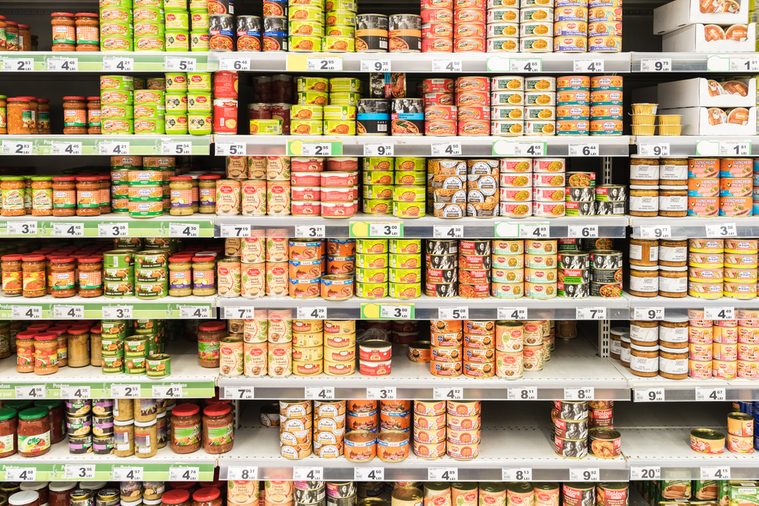
Nonperishable food
Stocking up on food is a no-brainer if you know you won’t be able to get to a grocery store, but you might be surprised by just how much food to keep on hand. The Red Cross recommends keeping two weeks worth of food available in case you’re unexpectedly stuck at home, or enough to last three days if you’re evacuating. You don’t just have to stick to sad cans of beans though. Get creative and stick with foods you actually want to eat. It’s surprising how much peanut butter or beef jerky could lift your spirits when you’re facing a crisis.

Pet food
Don’t forget your furry friends when you’re stocking up on food. Keep at least two weeks worth of dry food on hand so your pets can stay healthy and safe, but don’t bother shelling out on anything fancy. “It doesn’t have to be the highest standard, but if you can keep some food that’s going to keep pets healthy and vibrant, that’s good,” says Jensen. Make sure you know these other tips for keeping your pet safe during a natural disaster.
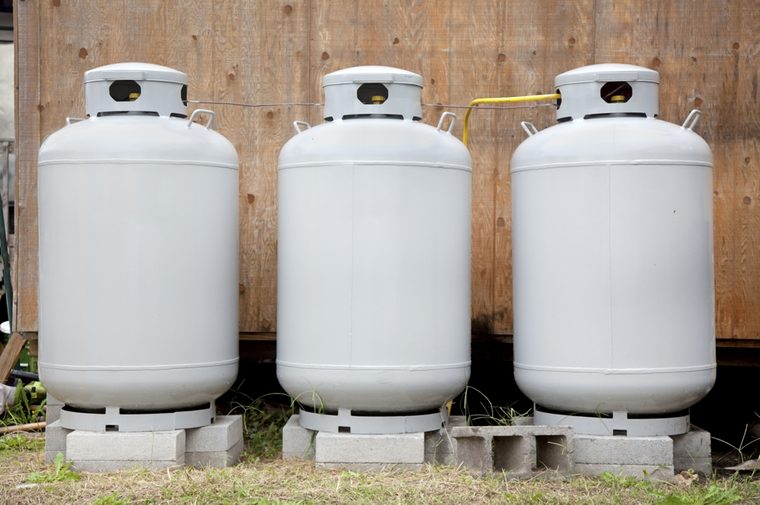
Extra propane
If your home’s electricity or gas isn’t working, the oven and microwave could be out of the question—but that doesn’t mean you’re stuck with cold meals. Keep extra propane on hand so you can fire up a BBQ or camping stove.

Water
H2O seems like a given, but if anything goes wrong with your local water system, you’ll need to have backup. As a rule of thumb, make sure you have a gallon per person per day, ideally enough to last two weeks. If you don’t want to leave jugs of water sitting around all the time, fill clean, empty soda bottles or a large water dispenser when there’s a storm coming.

Cash
Don’t assume you can rely on plastic during an emergency. Card readers might not work, and ATMs could run out of money during a natural disaster, so keeping backup bills on hand could be a lifesaver. Talk to your family about how much you can afford to keep out of the bank and where the safest place in your home for it is.
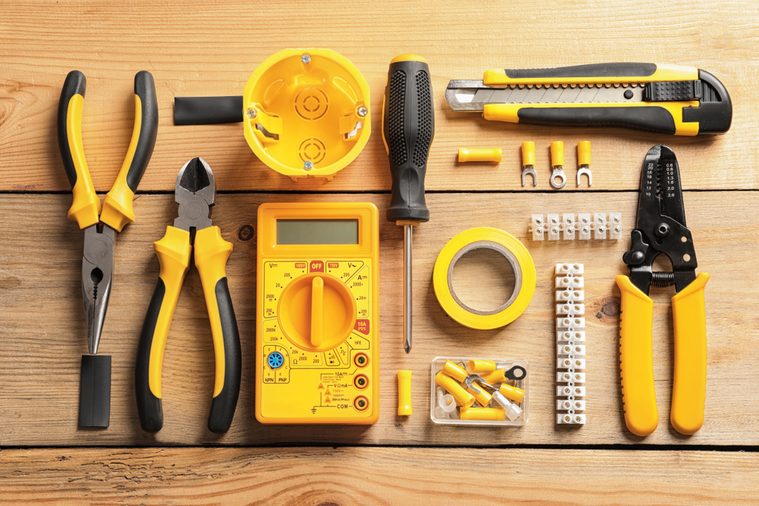
Tool kit
Even if you’re not used to making your own repairs, a toolbox could be a vital resource during an emergency situation. “It gives you a lot of latitude to be able to adapt and fix things and be somewhat independent if no help is available,” says Jensen. A basic toolkit with items such as a wrench, screwdrivers, and a hammer can help you fight back when your home and supplies are under stress.
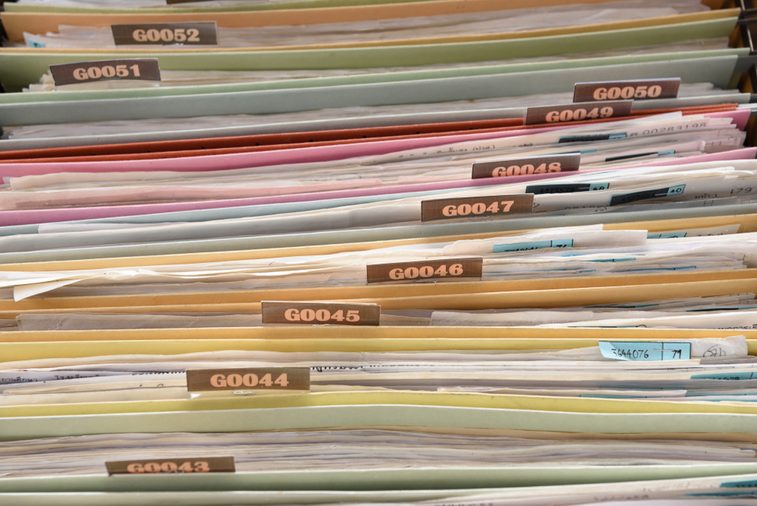
Copies of important documents
It’s always a good idea to keep original copies of important documents like home ownership papers or insurance information, but keep a backup on hand too. “It’s surprising how important that can be,” says Jensen. Leave hard copies in a safe space (away from the originals), or save them digitally in a password-protected file in the cloud. Find out 15 ways you can help after a natural disaster.
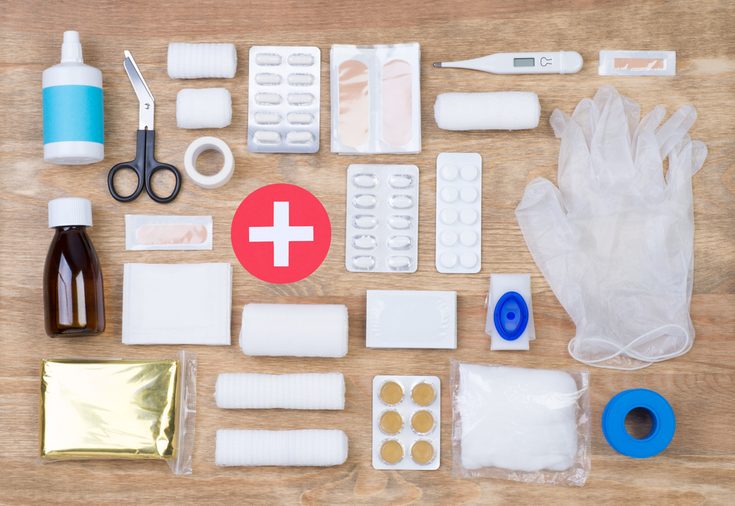
First aid kit
“A well-stocked first aid kit is critically important,” says Jensen. Buy your own, like this 100-piece kit, or throw your own together. The Red Cross recommends keeping bandages, an instant ice pack, antiseptic wipes, scissors, and more. These are 10 items that should be in every travel first aid kit.
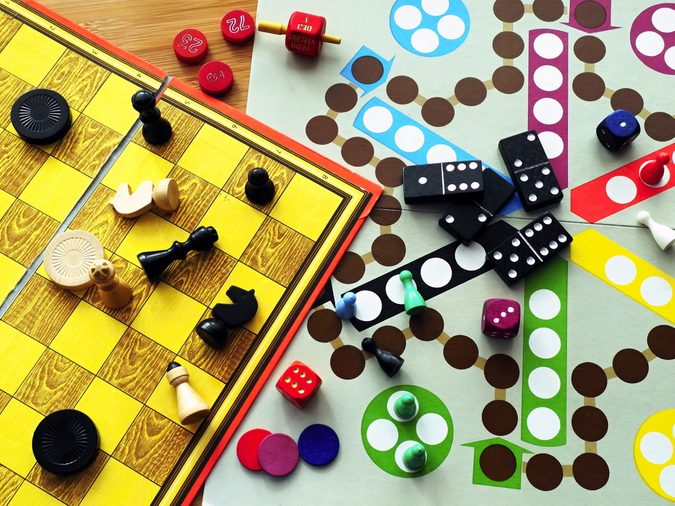
Just-for-fun items
When you’re rushing to pack your bags for an evacuation, a few nonessentials can actually be some of the best things for your mental wellbeing. “We need to find ways of comforting ourselves,” says Jensen. “Relax and take some time to realize it’s going to be OK.” He suggests packing a book, a child’s favorite stuffed animal, or playing cards. Letting yourself relax a bit will help normalize the situation and take your mind off the stress. Here are 10 other things to keep in a home emergency kit.
Disclosure: This post is brought to you by Reader’s Digest editors, who aim to highlight products and services you might find interesting. If you buy them, we may get a small share of revenue from our partners, such as Amazon Services LLC Associates Program. We frequently receive products free of charge from manufacturers to test. This does not drive our decision as to whether or not a product is featured or recommended. We welcome your feedback. Have something you think we should know about? Email us at [email protected].